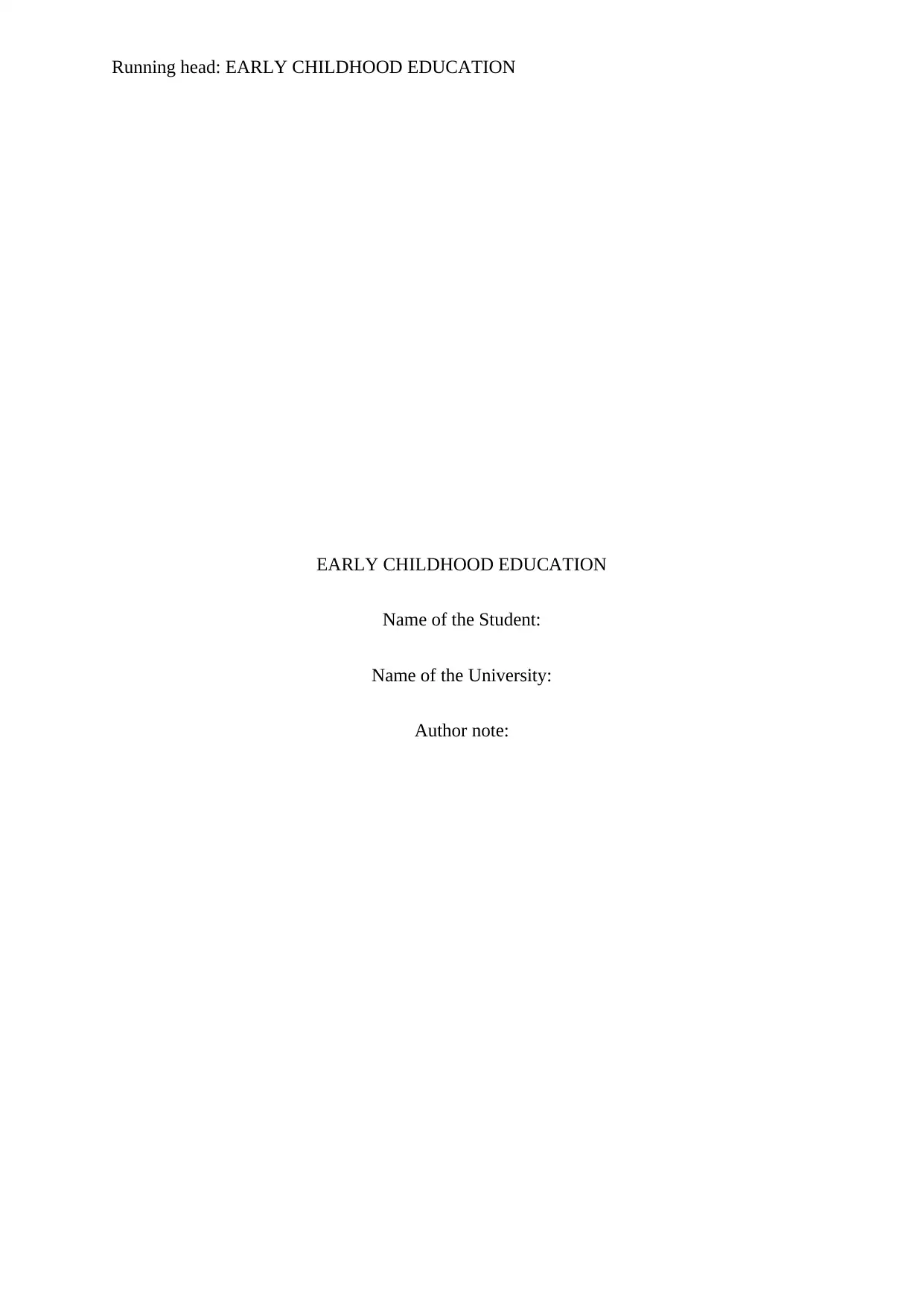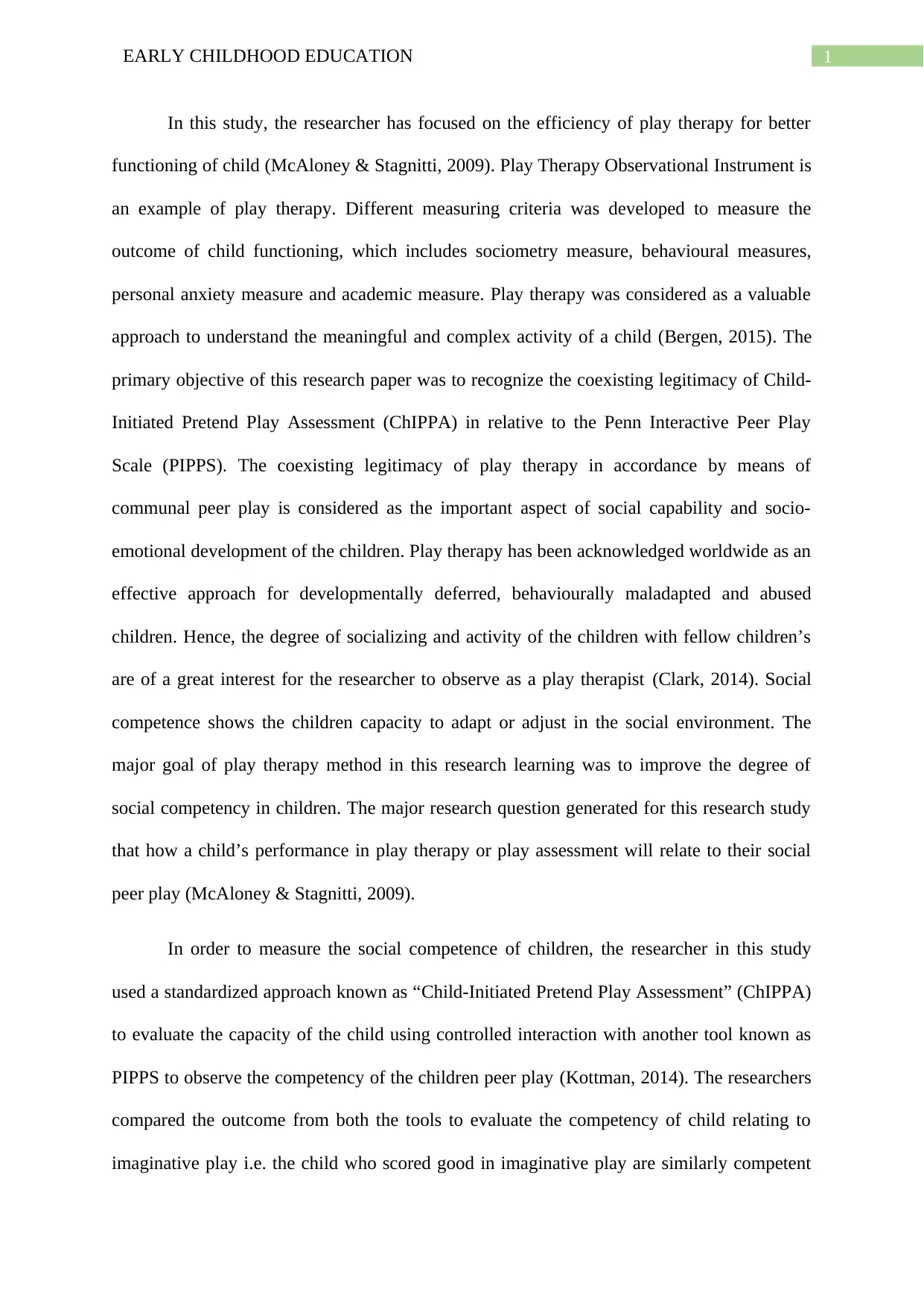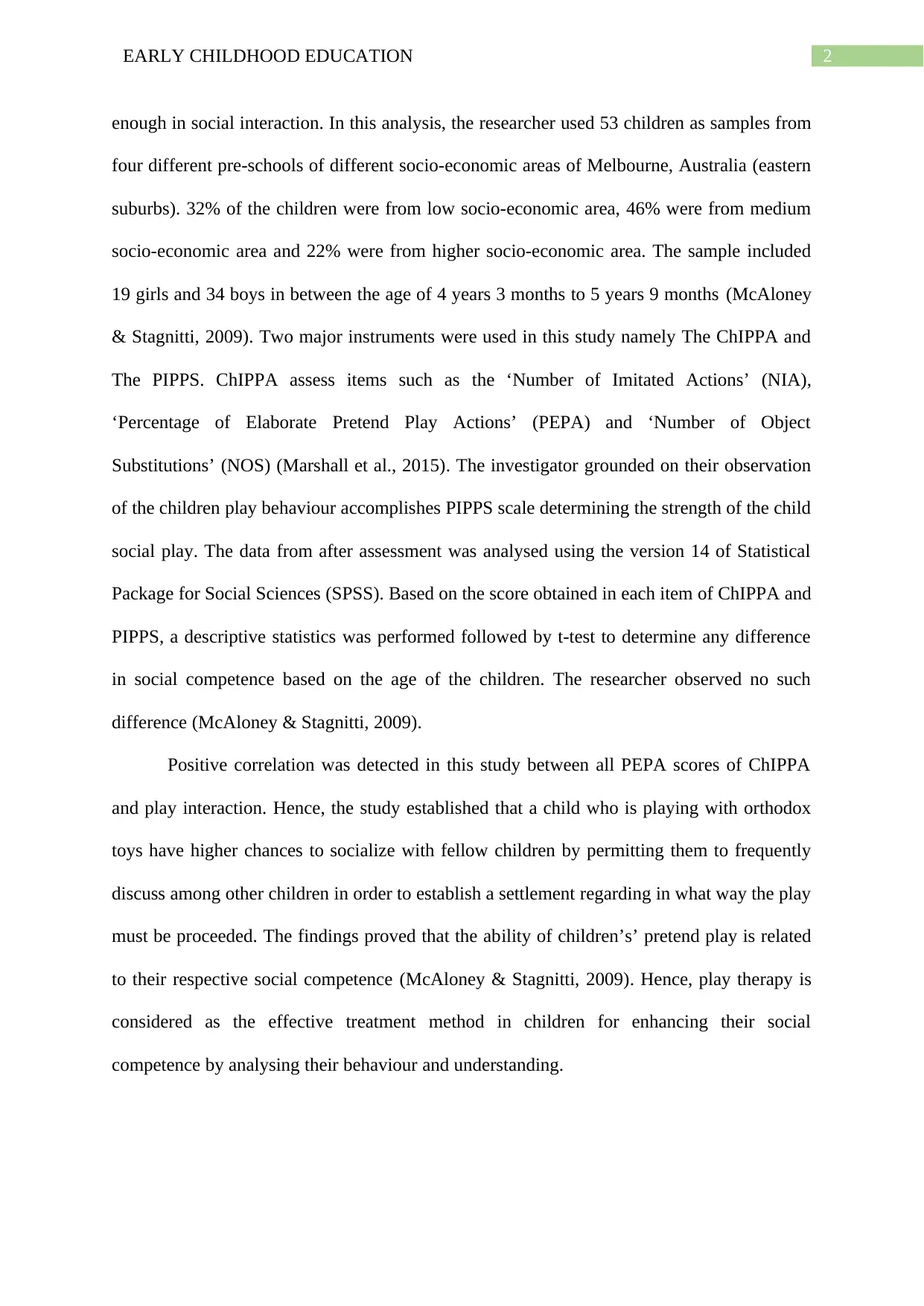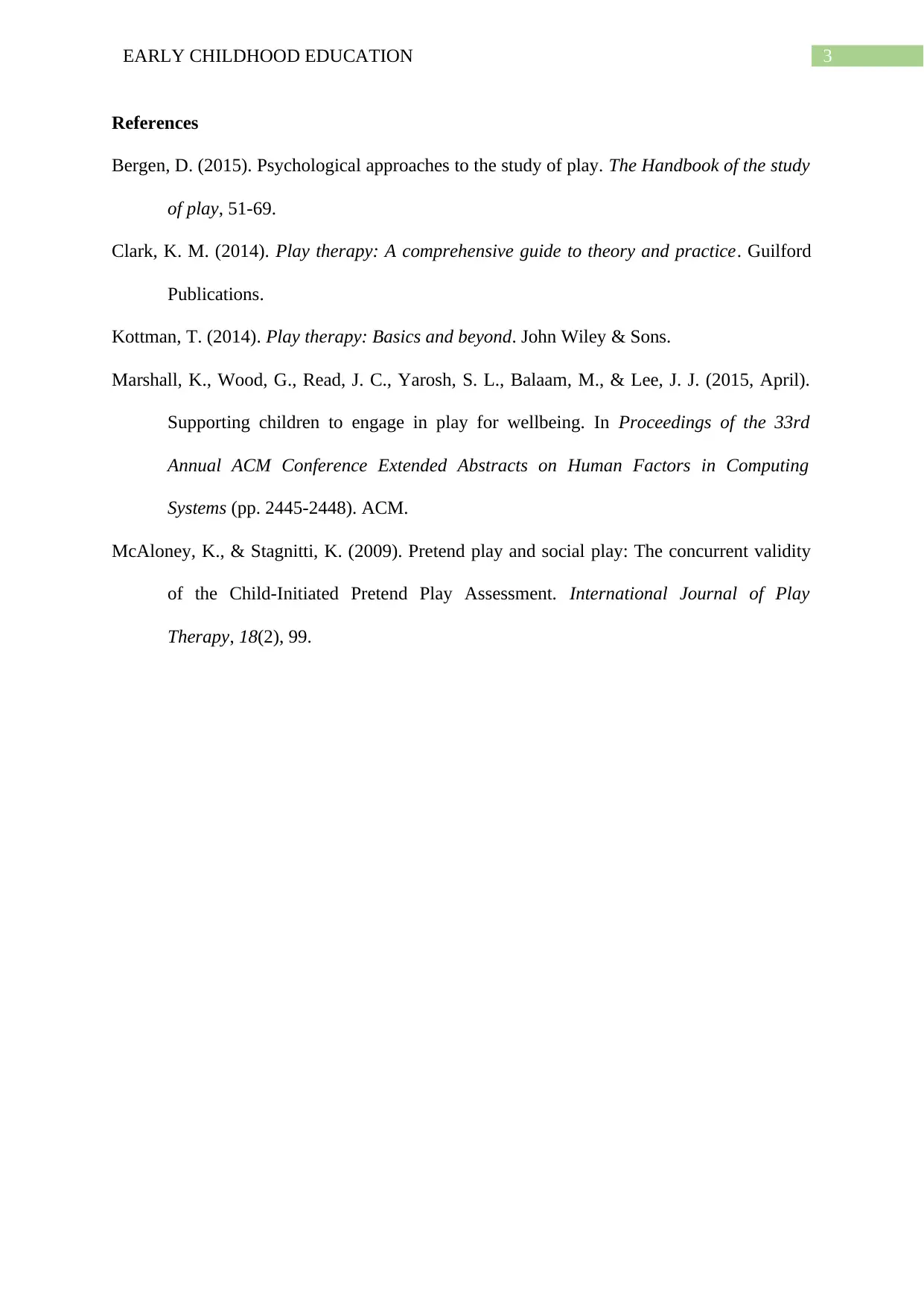This study focuses on the efficiency of play therapy in early childhood education and its impact on child functioning. It explores the use of Play Therapy Observational Instrument and measures the outcome of child functioning through various criteria. The research aims to recognize the coexisting legitimacy of Child-Initiated Pretend Play Assessment (ChIPPA) in relation to the Penn Interactive Peer Play Scale (PIPPS) and its importance in social capability and socio-emotional development of children. The study also examines the social competence of children through the use of standardized approaches like ChIPPA and PIPPS. The findings suggest a positive correlation between pretend play and social competence, highlighting the effectiveness of play therapy in enhancing social skills in children.
![[object Object]](/_next/static/media/star-bottom.7253800d.svg)
![[object Object]](/_next/static/media/star-bottom.7253800d.svg)



